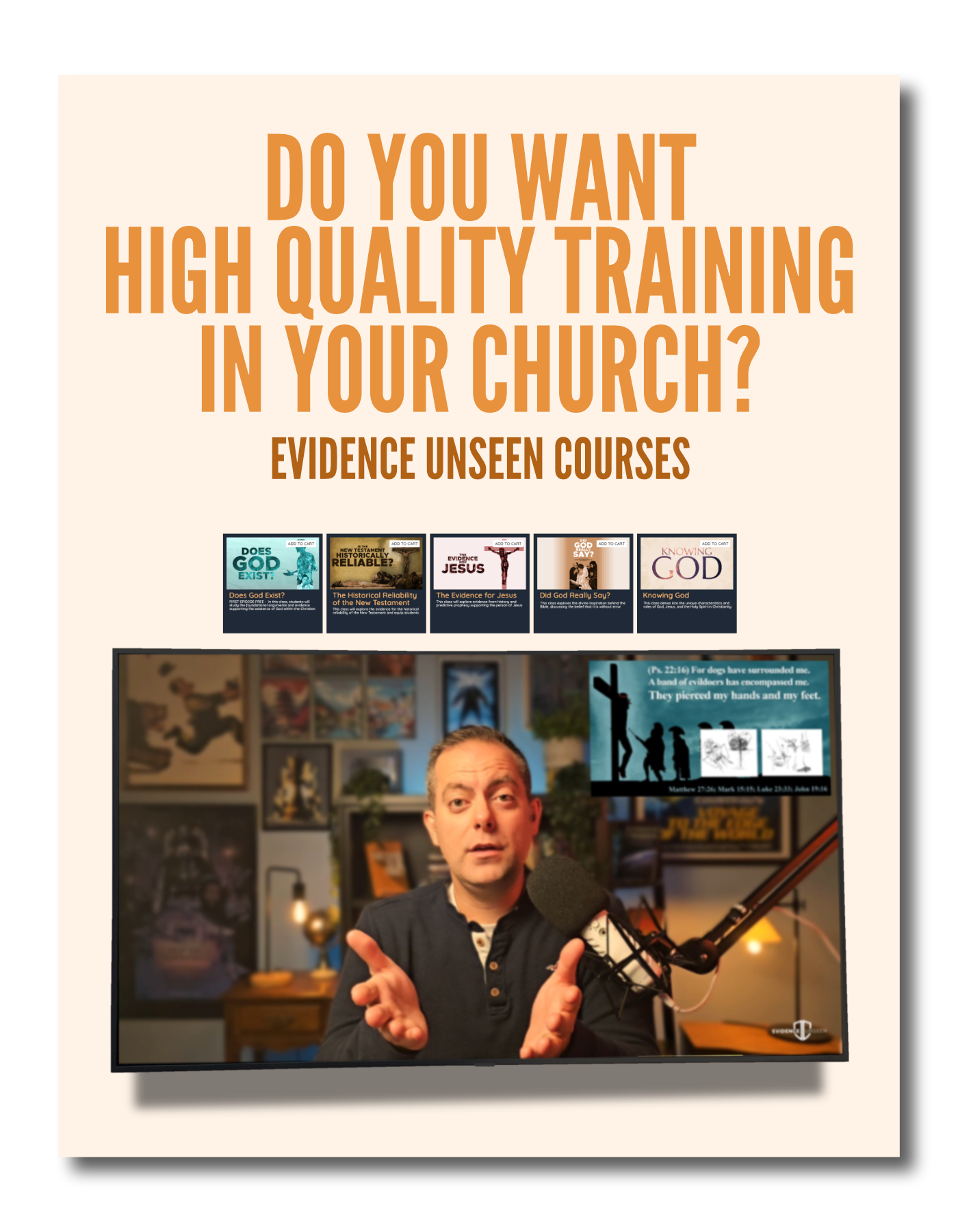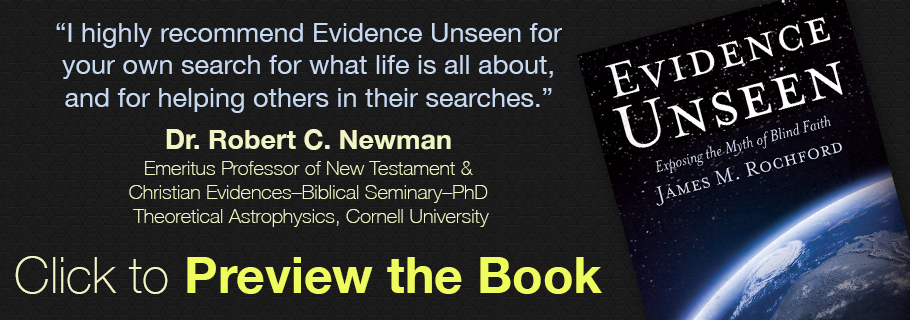Romans
(Rom. 1:5) Does this passage support Lordship Theology?
(Rom. 1:8) What does Paul mean when he says that their faith reached the “whole world”?
(Rom. 2:7) Does this verse teach that good works can get us into heaven?
(Rom. 2:22) What does it mean to “rob temples”?
(Rom. 2:24) Why does Paul cite Isaiah 52:5 and/or Ezekiel 36:20ff?
(Rom. 3:11) Do humans seek for God or not?
(Rom. 3:22) Is this verse about the “faithfulness of Jesus” or is it about “our faith in Jesus”?
(Rom. 3:25) What does “propitiation” mean?
(Rom. 4:9-12) Is Paul teaching that the church has fulfilled the Abrahamic covenant?
(Rom. 5:12, 14) How can God judge all men for Adam’s sin, when it wasn’t their fault?
(Rom. 5:13) Did God not judge people before the time of the Law?
(Rom. 5:15, 17) Is Paul saying that everyone will be forgiven in the end?
(Rom. 5:20) Is Paul saying that the Law makes us want to sin more?
(Rom. 6:3-4) Is this passage describing water baptism? –or something else?
(Rom. 6:6) Does Paul really believe that we do not have a sinful nature anymore?
(Rom. 7:1-3) Why does Paul compare the Law to marriage? This illustration doesn’t seem to fit.
(Rom. 7:6) In what sense are Christians “released from the Law”?
(Rom. 7:8-13) Is Paul describing himself here, or something (or someone) else?
(Rom. 7:14-25) Is Paul describing his own personal struggle with sin?
(Rom. 8:1) Is there condemnation or not?
(Rom. 8:26-27) Does this refer to speaking in tongues?
(Rom. 8:29-30) Is this passage teaching predestination?
(Rom. 8:36) Why does Paul quote Psalm 44:22?
Romans 9: An Arminian Interpretation
(Rom. 9:3) Does Paul really want to go to hell, so that his Jewish friends could go to heaven?
(Rom. 9:5) Does this passage support the deity of Christ?
(Rom. 9:13) Does God predestine some people to hell before they are even born?
(Rom. 9:22-23) Does God create people only to damn them?
(Rom. 10:14) Does this verse teach that we need to hear Jesus’ name to be saved?
(Rom. 11:1-21) Why did the Jews reject Jesus, if he was their Promised Messiah?
(Rom. 11:22) Does this passage threaten the idea of eternal security?
(Rom. 12:3) Does God give us our faith—or do we produce faith?
(Rom. 12:20) What does Paul mean by “burning coals on his head”?
(Rom. 13:1-7) Are we supposed to submit to evil governments?
(Rom. 14:15) Can believers be “ruined” or “destroyed” and go to hell for eating idol-meat? (see comments on 1 Cor. 8:11)
(Rom. 15:15) If Paul had never been to Rome, then why does he say “remind you again”?
(Rom. 16) Was this chapter added to the book of Romans?
(Rom. 16:7) Was there a female apostle (Junia), or was this a contraction for a man’s name (Junias)?
1 Corinthians
(1 Cor. 1:1) Who was Sosthenes?
(1 Cor. 1:12) Is personal discipleship biblical?
(1 Cor. 1:18-31) Is Christianity foolish?
(1 Cor. 1:31) Why does Paul quote Jeremiah 9:23-24?
(1 Cor. 2:6-8) Who are the “rulers of this age?”
(1 Cor. 2:9) Why does Paul quote Isaiah 64:4 and 65:17?
(1 Cor. 2:14) Are non-Christians unable to understand the Bible?
(1 Cor. 2:16) Why does Paul quote Isaiah 40:13?
(1 Cor. 3:12-15) Does the Bible teach purgatory?
(1 Cor. 3:12-15) Does a “bema seat reward” contradict the concept of grace?
(1 Cor. 3:17) Will God destroy someone for smoking?
(1 Cor. 3:18) Is Christianity foolish? (cf. 1:18-31)
(1 Cor. 3:19-20) Why does Paul quote Job 5:13 and Psalm 94:11?
(1 Cor. 4:5) Can we judge people or not?
(1 Cor. 4:21) Was Paul really going to beat them with a rod?
(1 Cor. 5:1-13) Does this passage teach excommunication from the church?
(1 Cor. 5:5) Handed over to Satan? (cf. 1 Tim. 1:20)
(1 Cor. 5:9) Is this describing a lost letter? (see comments on Joshua 10:13)?
(1 Cor. 6:9-10) Are sinners not getting into heaven?
(1 Cor. 6:13) Will we not have stomachs or food in heaven?
(1 Cor. 7:8) Is Paul against marriage?
(1 Cor. 7:9) Did Paul have a low view of marriage?
(1 Cor. 7:10, 12, 25) Are these portions of Scripture not inspired?
(1 Cor. 7:14) What does sanctified mean here?
(1 Cor. 8:1) Is it “arrogant” to be knowledgeable?
(1 Cor. 8:5-6) Is there one God or not?
(1 Cor. 8:11) Can believers be “ruined” or “destroyed” and go to hell for eating idol-meat?
(1 Cor. 9:9) Why does Paul cite Deuteronomy 25:4?
(1 Cor. 10:1-5) Did Paul allegorize the OT?
(1 Cor. 10:7) Why does Paul cite Exodus 32:6?
(1 Cor. 10:8) Were there 23,000 or 24,000 slain?
(1 Cor. 10:33) Was Paul a man-pleaser or not?
(1 Cor. 11:2) Should we follow traditions or not?
(1 Cor. 11:3) Does the Bible teach that men have authority over women?
(1 Cor. 11:4) Is it wrong for a man to wear a baseball cap while praying?
(1 Cor. 11:5-6) Is it wrong for a woman to have her head uncovered while praying?
(1 Cor. 11:7-9) Are women made in God’s image or man’s?
(1 Cor. 11:10) What does it mean that a woman has “authority” (exousia) on her head?
(1 Cor. 11:10) Because of the angels?
(1 Cor. 11:14) Does nature teach that long hair is wrong?
(1 Cor. 11:27) Taking the Lord’s Supper in an unworthy manner?
(1 Cor. 11:29) Is Paul referring to transubstantiation in this passage? Or something else?
(1 Cor. 12:3) Is it impossible for a false teacher to say the phrase “Jesus is Lord”?
(1 Cor. 12:28) Are the spiritual gifts equal or not?
(1 Cor. 13:7) Should Christians believe all things?
(1 Cor. 13:8-13) Are prophecy and tongues temporary?
(1 Cor. 13:13) Why does Paul place love above faith and hope?
(1 Cor. 14:21) Why does Paul quote Isaiah 28:11?
(1 Cor. 14:22) Are tongues a sign for non-Christians?
(1 Cor. 14:34-35) Are women supposed to keep silent?
(1 Cor. 15:2) Does this passage threaten eternal security?
(1 Cor. 15:3b-5) Was this an early Christian statement of faith?
(1 Cor. 15:29) What is baptism for the dead?
(1 Cor. 15:32) Why does Paul quote Isaiah 22:13?
(1 Cor. 15:44) Will we have physical bodies or spiritual?
(1 Cor. 15:52) The last trumpet?
(1 Cor. 16:2) Do we have to meet on Sunday for church?
(1 Cor. 16:20) Should we greet each other with a holy kiss?
(1 Cor. 16:22) Is it wrong to curse people?
2 Corinthians
(2 Cor. 1:8) Will God give us more than we can handle or not?
(2 Cor. 2:4) What is the “sorrowful letter” (c.f. 2 Cor. 7:8)?
(2 Cor. 2:5-8) Who is this believer described here?
(2 Cor. 5:10) Will Christians be judged?
(2 Cor. 6:14) Why is it wrong to marry a non-Christian?
(2 Cor. 7:8) What is the “sorrowful letter”?
(2 Cor. 8:15) Why does Paul quote Exodus 16:18?
(2 Cor. 12:2) What is the third heaven?
(2 Cor. 12:7) What was Paul’s thorn in the flesh?
(2 Cor. 12:12) Does this passage teach that the charismatic gifts were only for the apostles?
(2 Cor. 13:12) Should we greet each other with a holy kiss?
Galatians
(Gal. 1:1-5) Why doesn’t Paul pray in his introduction?
(Gal. 1:13) Did Paul’s personality change after his conversion?
(Gal. 2:1) What did Paul do in the 14 year period before his second journey?
(Gal. 2:2, 6, 9) Why does Paul write that these men were of reputation? Is he being condescending?
(Gal. 3:8-14) Did Paul properly handle the OT?
(Gal. 3:16) Was the seed singular or plural?
(Gal. 3:17) Was Paul wrong in saying that 430 years passed between Moses and Abraham?
(Gal. 4:3) What does Paul mean by “the elemental things of the world”?
(Gal. 4:14) Isn’t it arrogant for Paul to compare himself to Christ in this way?
(Gal. 4:24) Are we allowed to interpret the OT allegorically?
(Gal. 4:27) Why does Paul quote Isaiah 54:1?
(Gal. 5:4) Does this passage teach that Christians can lose their salvation?
(Gal. 5:21) Will sinners not “inherit the kingdom of God”?
(Gal. 6:7) Does this passage teach karmic law?




